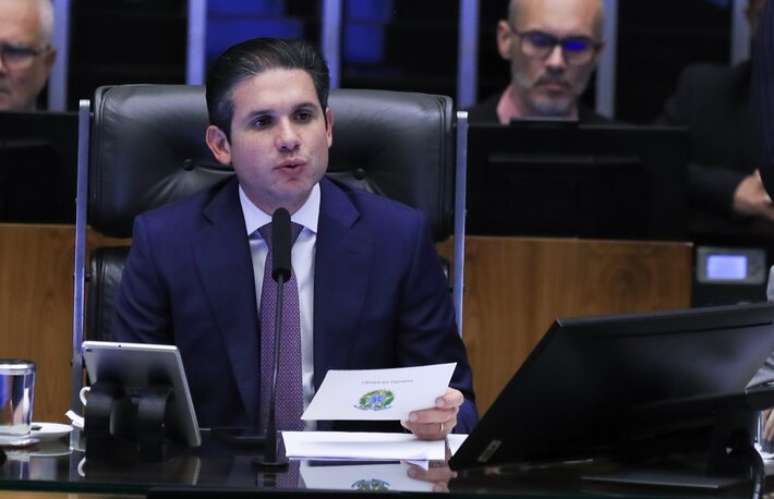Smaller subs complained about the position of larger allies, such as PT and PL
BRASILIA – The Chamber of Deputies approved, on Tuesday 22nd, a project that prevents small political parties – such as Novo and PSOL – from going to Federal Supreme Court (STF) contests the legislative proposals approved by the National Congress. The text says that only parties that have reached the barrier clause can appeal to the Court.
The Constitution says that, to reach the barrier clause, parties must reach 3% of the valid votes in 9 Brazilian states, with at least 2% of the valid votes in each of them, or elect 15 federal deputies in 9 states.
The result caused discomfort, especially among deputies from the PSOL and Novo, who complained about the position of their main allies (PT and PL respectively), who supported the project.
The final score ended with 344 votes in favor of the project, 95 against and 3 abstentions. The matter goes to the Senate.
“The PL should no longer ask Novo to enter the FST with facts because it does not have the courage to do so or because it has hidden interests behind it,” said Marcel Van Hattem (Novo-RS). “The position of the PT surprises me. I make a request: that it help the parties involved in democratic struggles”, launched an appeal Fernanda Melchionna (PSOL-RS).
The PCdoB also objected to the project. “It is clear that this project is unconstitutional,” says Renildo Calheiros (PE), party leader in the Chamber. For him the text creates different categories of political parties.
The deputies of PT and PL justified their positions. Lindbergh Farias (RJ), leader of the PT, said the party would support eliminating the barrier clause section in a Senate vote, but could not reject the bill, which it said strengthens the Supreme Court. “We are worried about our allied parties, PSOL and PCdoB, which are not affected immediately, there is a transition,” he said.
On the part of the PL, Bia Kicis (DF), the party’s position was taken after an agreement with the rapporteur to eliminate other sections of the project. Subsequently, Sóstenes Cavalcante (RJ), party leader in the Chamber, said that there had been a direct request from the PL president, Valdemar Costa Neto, to maintain support for the project.
“Our constituency has the clear leadership of President Valdemar and I ask our colleagues to be loyal to the leadership of our party,” Sóstenes said.
This bill, which regulates constitutionality control actions, was born from a commission of jurists led by STF Minister Gilmar Mendes.
The rapporteur, Alex Manente (Cidadania-SP), made changes to the wording during a vote in the Constitution and Justice Committee (CCJ). The text was approved by this collegiate body and Novo appealed the decision.
Beyond the partisan issue, there are sections of the current bill that the PL likes. The text of the proposal makes monocratic decisions (taken by a single minister) difficult. If the text is approved, the Minister of the Court will have to justify this type of decision, once taken, by subjecting the vote to the analysis of the plenary. In other words, currently only a speaker can suspend the effects of a law passed by Congress. According to the project, this can only happen with the approval of the majority of the FST plenary.
Source: Terra
Rose James is a Gossipify movie and series reviewer known for her in-depth analysis and unique perspective on the latest releases. With a background in film studies, she provides engaging and informative reviews, and keeps readers up to date with industry trends and emerging talents.







